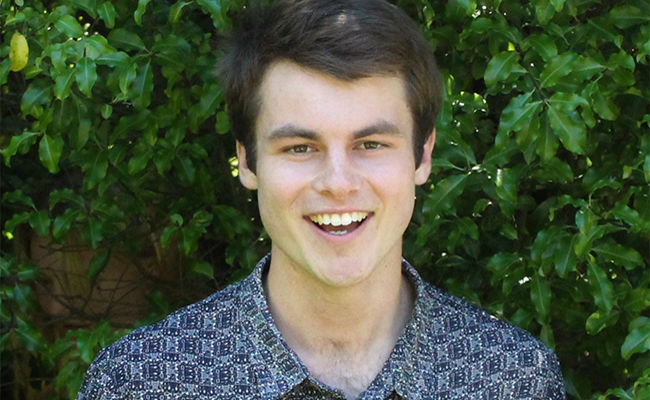
Gavin Bishop has taken a year out of the traditional medical school pathway to undertake a Bachelor of Medical Science with Honours, in the Otago Medical School's Department of General Practice and Rural Health.
He has received a Maurice and Phyllis Paykel Memorial Scholarship for his research project: Mixing it up: Exploring the motivations and experiences of consultants in dual practice in Aotearoa New Zealand.
“New Zealand has a predominantly publicly funded and provided health system. Yet, most senior clinicians work in both the public and private sectors which is known as dual practice,” Gavin says.
“It's a common arrangement all over the world. However, explorations of the reasons behind why clinicians choose this path, and their experiences providing services in dual systems, has been mostly limited to low and middle-income nations.”
Gavin and his supervisors Professor Tim Stokes and Dr Erin Penno have found a gap in current research knowledge regarding the experiences of senior clinicians in dual practice in New Zealand.
“There's a gap in understanding what motivates doctors in higher income countries like New Zealand to work both for their local public health board and set-up or join a private practice, how offering both services is or isn't working, what they think about the system in general and their thoughts about what might make it work better,” Gavin explained. Their study aims to fill that gap.
“We know from overseas work that clinicians find multiple benefits from working across both sectors such as clinical autonomy, strategic influence and clinical satisfaction”.
The study is expected to provide in-depth, nuanced insights into why clinicians in Aotearoa choose to begin and continue to engage in dual practice, and the benefits, drawbacks, and nuances of the dual practice model in a New Zealand setting.
“Everyone's goal is to provide the best healthcare with the best outcomes possible, but the recent Health and Disability System Review found that we have a fragmented health system that does not serve everyone well or equally.
“The Government is beginning to implement the recommended reforms to address this in April. While these reforms are only for the public healthcare system, they will ultimately have an impact on those working in dual practice. This makes this research very timely.
“Understanding the experiences, considerations, and perspectives of clinicians in dual practice will point to ways that both clinicians and policymakers can improve the delivery of healthcare overall and develop well-crafted policies which make the most of dual practice, promote more equitable outcomes and identify what works well for clinicians,” says Gavin.
This also aligns with objectives of the “quadruple aim” set out in an earlier study: “To improve clinician experience and satisfaction, in turn supporting the goals of improving population health, reducing cost and improving patient experience”.
Gavin says he was drawn to this area of research as he is “fascinated by ideas which create impact at scale and bring clarity in complex systems and these two themes are central to a health system research project”.
“This particular project idea appealed to me as a medical student interested in the experiences of senior clinicians. We're going to start looking for clinicians involved in dual practice to interview soon, and I'm really looking forward to those conversations.”
Those themes of impact at scale and clarity are evident in the other pursuits of the former New Plymouth Boys' High School student and former Otago University Students' Association Executive member.
“I enjoy making videos documenting what I've learned at university with the aim of creating things I wish I could've shown my younger self,” Gavin says.
His video - Medical School at Otago University: The Unofficial Crash Course - YouTube - has been viewed over 9,000 times.
Gavin is also a founding member of Effective Altruism Dunedin. This Otago University Student Association-affiliated club is the local branch of the global social movement aiming to use evidence and careful analysis in figuring out how to use resources to help others the most. You can find Effective Altruism Dunedin on Facebook.
Gavin is very grateful to the Maurice and Phyllis Paykel Trust for his scholarship and to the Dunedin School of Medicine for paying the fees of the honour programme.
“We've got a great cohort this year each working on fascinating projects and that wouldn't be possible without the support from the Dunedin School of Medicine.”
The University of Otago is very grateful to be the recipient of these awards. The Maurice and Phyllis Paykel Trust was established in 1973 by the late Mr. Maurice Paykel, philanthropist and co-founder of the Fisher and Paykel group of companies. The charitable Trust is dedicated to the improvement of health through the support of research and sponsorship of research trainees in the health-related sciences. Each year in addition to its support of six honours scholarships, it provides funds for PhD students and staff to attend health-related research conferences and grants for research equipment.